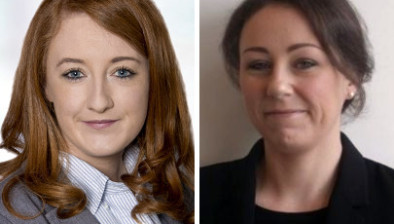Supreme Court: Angela Kerins’ discovery appeal dismissed

The Supreme Court has dismissed former Rehab CEO Angela Kerins’ appeal against High Court’s refusal of discovery of Dáil documents and correspondence.

About this case:
- Citation:[2024] IESC 24
- Judgment:
- Court:Supreme Court
- Judge:Mr Justice Donal O'Donnell
Delivering the leading judgment for the Supreme Court, Chief Justice Donal O’Donnell noted that “however framed, the claim in these proceedings seeks damages, and cannot be advanced without reference to and reliance on utterances made in the Houses of the Oireachtas, which necessarily involves making the members either collectively or individually amenable in a most direct way to a court in respect of such utterances in breach of the privilege required for such utterances, and indeed for the members and the House, by the Constitution itself”.
Background
Ms Kerins, the appellant, resigned from her position as CEO of the charity Rehab following a Public Accounts Committee (PAC) inquiry into Rehab’s funding in 2014.
Having voluntarily attended a widely reported upon public meeting with PAC on 27 February 2024, Ms Kerins contended that she was inappropriately questioned in a hostile manner and was traumatised by this process, leading to her hospitalisation and subsequent suicide attempt on 14 March 2014. A second meeting took place in her absence on 10 April 2014, which criticised her non-attendance.
Ms Kerins issued judicial review proceedings seeking inter alia injunctive relief as against the respondents sitting as the PAC, declarations that the PAC’s procedures were unfair and unlawful, and damages for breaching her right to constitutional justice and for personal injury and damage to reputation as a result of her unlawful examination by the PAC.
Ms Kerins sought discovery of documents relating to the meetings of the PAC. The High Court ordered discovery in respect of four categories. The Court of Appeal allowed the respondents’ appeal against the discovery order on the basis that the issue of jurisdiction was to be determined first.
In 2017, a Divisional Court dismissed the application, concluding that Ms Kerins’ claim for damages was precluded by the principle of non-amenability of Oireachtas members to any court in respect of utterances made within the Houses under Article 15.13 of the Constitution, that a claim that the PAC was acting ultra vires was in principle maintainable, and that the jurisdictional issue only arose where an individual was compelled to attend a meeting.
Having reversed the decision of the Divisional Court, the Supreme Court in Kerins No. 1 [2019] IESC 11 and Kerins No. 2 [2019] IESC 42 found that the absence of compulsion did not mean that a court could not determine if the PAC in any given case was acting within its jurisdiction, and that it was possible to maintain an action against the Dáil itself in respect of the jurisdictional issue if the Dáil could be said to be responsible for the PAC’s actions, and if conduct by individual members could be attributed to the PAC generally.
The Supreme Court found inter alia that it was possible in Ms Kerins’ case to attribute the actions complained of to the Dáil, and made a declaration that the PAC’s conduct of the hearing was unlawful, highlighting that a mere finding of unlawfulness did not itself give rise to an entitlement to damages before the High Court and that any damages claim would need to address how such a claim could be maintained without infringing Article 15.13.
Ms Kerins subsequently proceeded with a claim for damages and reactivated her discovery application seeking documents relating to inter alia the PAC’s terms of reference, any PAC meetings discussing Rehab since 1 December 2013, and communications and correspondence between members of the PAC and between the PAC and other bodies or individuals.
This application was dismissed by the High Court, finding inter alia that her damages claim inevitably involved the making of members of the Oireachtas amenable to a court in respect of utterances made therein and was inconsistent with freedom of debate protected by Article 15.10. Ms Kerins appealed to the Supreme Court.
The Supreme Court
Mr Justice O’Donnell emphasised: “It is the function of the Courts to establish the limits of any privilege accorded to the Oireachtas and its members, and to uphold it within those limits. But outside of those limits, the Courts must just as forcefully uphold the rights of other parties under the law.”
The court recognised that the dispute between the parties had resolved to a “sharp difference” as to the interpretation and application of Kerins No. 1 and Kerins No. 2, finding that while there was no doubt that those decisions were expressed in qualified and limited terms, they permitted scrutiny of what was said by Dáil members as relevant to the issue of conduct for the purpose of determining jurisdiction.
The applicant argued that notwithstanding the cautious language of the judgments, they established a general principle that a court could consider the words used by members of the Oireachtas where that was relevant to any claim of wrongdoing and extended to a claim for damages, and that if words could be seen as conduct for the purposes of determining jurisdiction they could properly become the basis of a claim for damages.
The respondents argued that the decisions were a very narrow and limited development of the law, and those limitations were central to the reasoning in the two judgments, and based on constitutional principle.
Indicating his agreement with the respondents, the Chief Justice noted that the sequence of cases commencing with Re Haughey [1971] I.R. 217, and leading to Kerins No. 1 and O’Brien v. The Clerk of Dáil Éireann [2020] 1 I.R. 90, were incremental and careful developments showing an awareness of the existence of important constitutional privileges that must be upheld even if the outcome may be in a particular case to deny to a plaintiff a remedy.
Finding that Kerins No. 1 made it “quite clear” that the decision did not mean that a decision on liability for damages in tort had been made in favour of Ms Kerins, the Chief Justice rejected that the Supreme Court should “simply recharacterise the words and utterances of the members of the committee as conduct and actions, for which the committee, and through it the Dáil, can be sued and a remedy in damages obtained”.
The court considered it necessary to focus on the claim made in the proceedings more closely in order to determine whether the High Court was correct to conclude that Ms Kerins’ claim sought to make members amenable to the court in respect of their utterances, and whether it could be said that the claim for damages before it against Dáil Éireann was in respect of what was said by members of the Oireachtas.
Noting that the only question was whether that conduct complained of amounted to utterances or was so closely connected with them as to come within the scope of the constitutional protection, the Chief Justice considered the starting point as the fact that the damages claim related to Ms Kerins’ reputation and good name.
Observing that if the discussions in the February meeting had been “civil, respectful and polite” they would not have given rise to a damages claim, that in Kerins No. 1 it was accepted that no claim would lie if identical statements were made in the course of a Dáil debate, and that the statement of grounds explicitly called for the court to adjudicate on the propriety of what was said by individual PAC members, the Chief Justice concluded that the High Court was correct to conclude that the gravamen of Ms Kerins’ complaint was that she suffered damage by virtue of what was said on the occasions in question.
Having determined that the Callely v Moylan [2014] 4 I.R. 112 exception did not apply to Ms Kerins’ case, the Supreme Court concluded that Ms Kerins’ claim sought damages and could not be advanced without reference to and reliance on utterances made in the Oireachtas, necessarily involving making members either collectively or individually amenable to a court in respect of such utterances in breach of the constitutional privilege.
Conclusion
Accordingly, the Supreme Court dismissed Ms Kerins’ appeal.
Angela Kerins v. Dáil Éireann [2024] IESC 24











